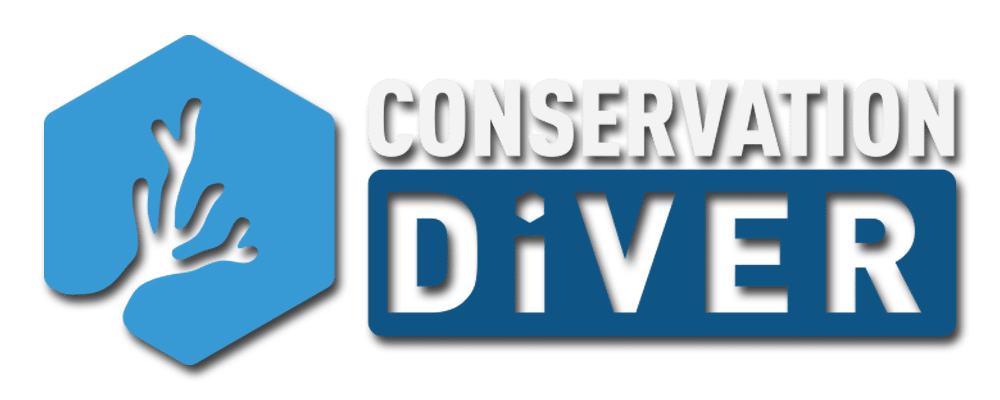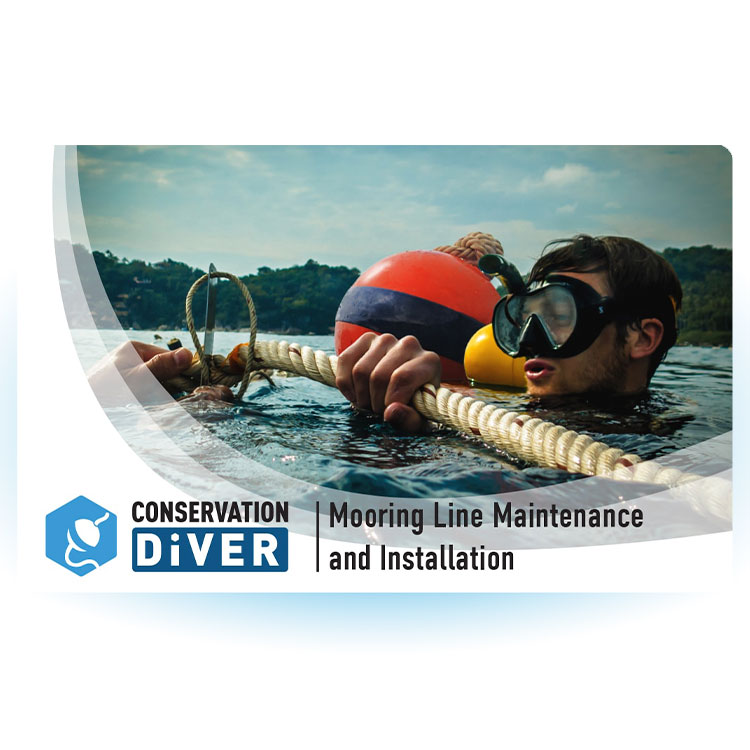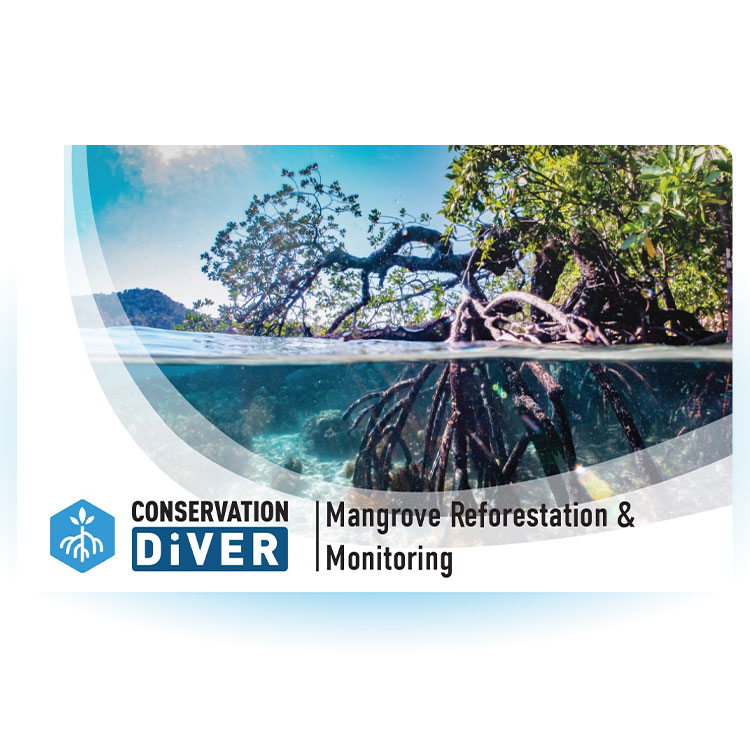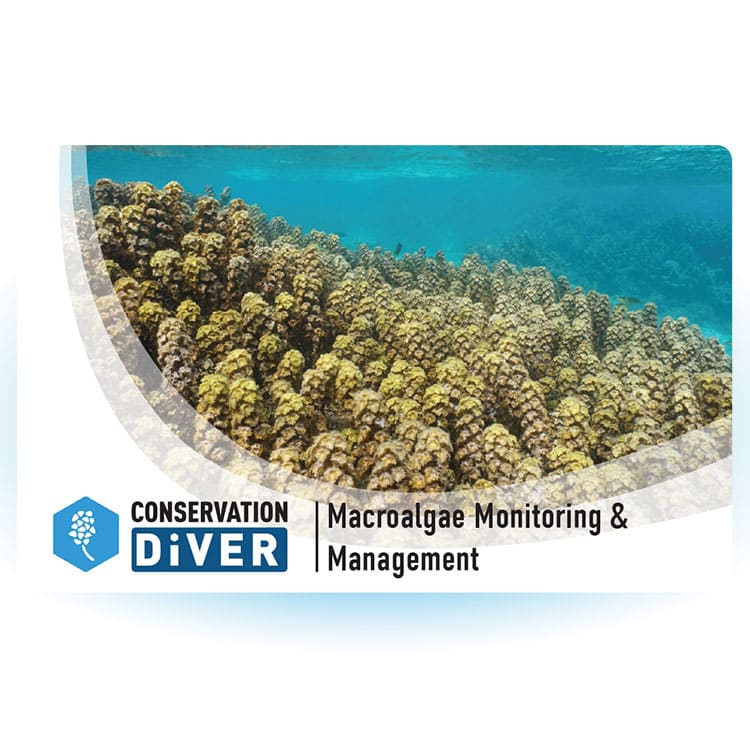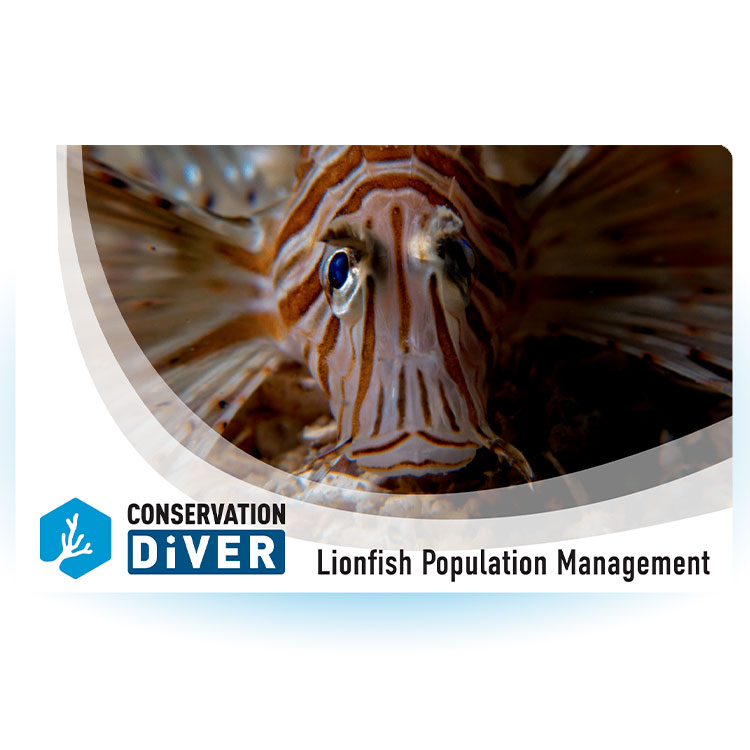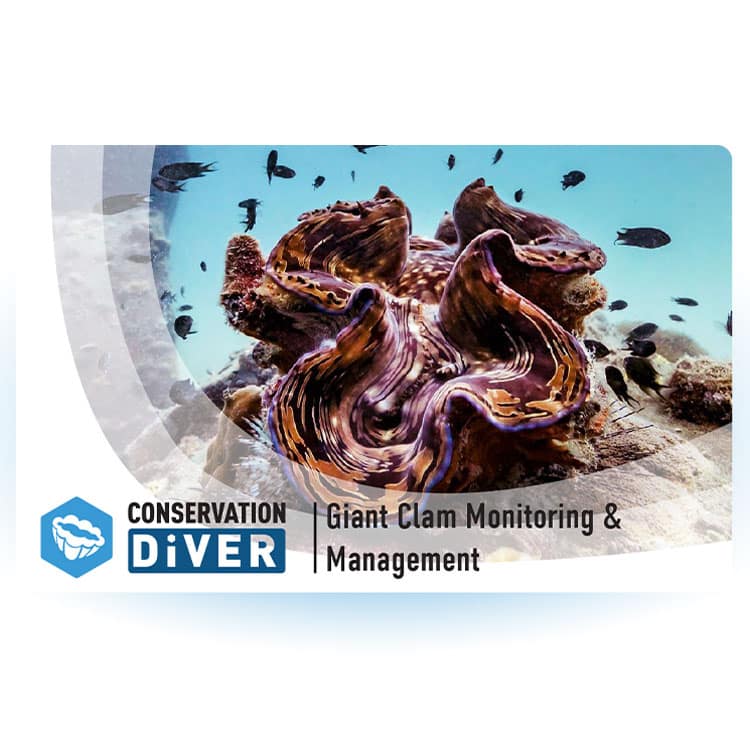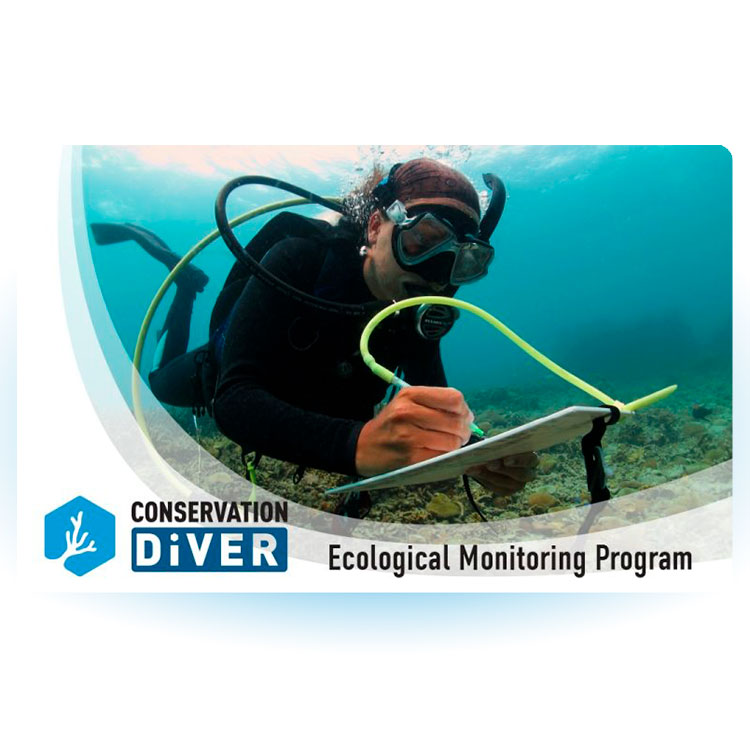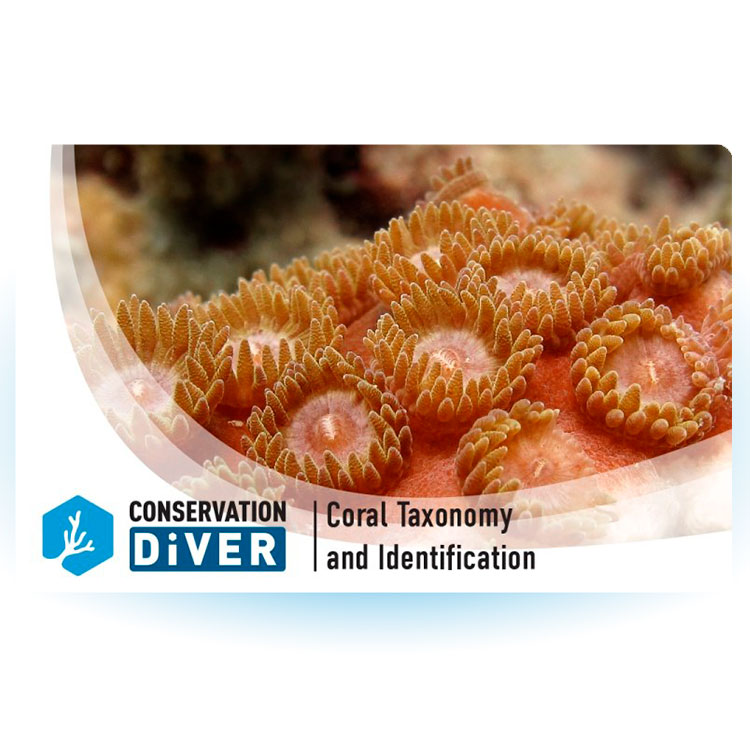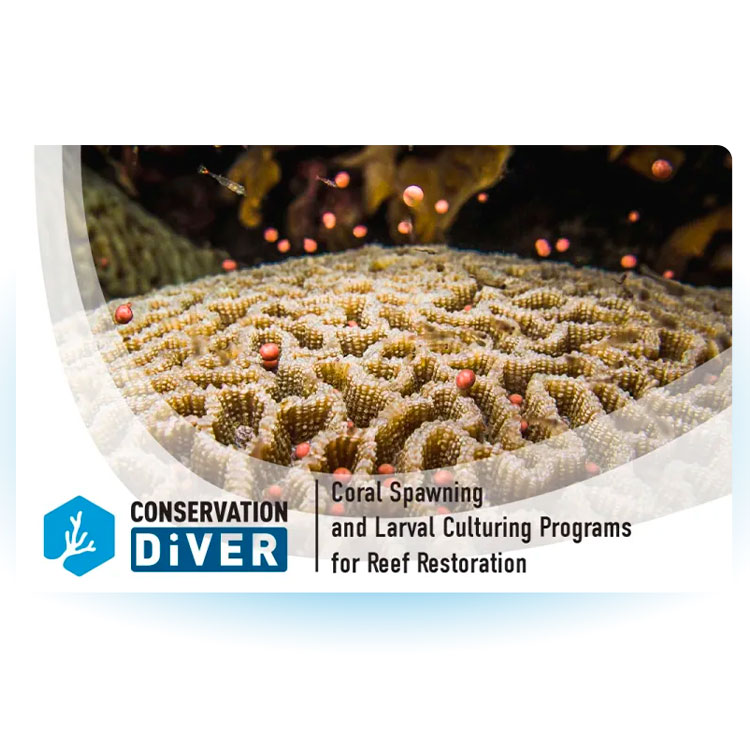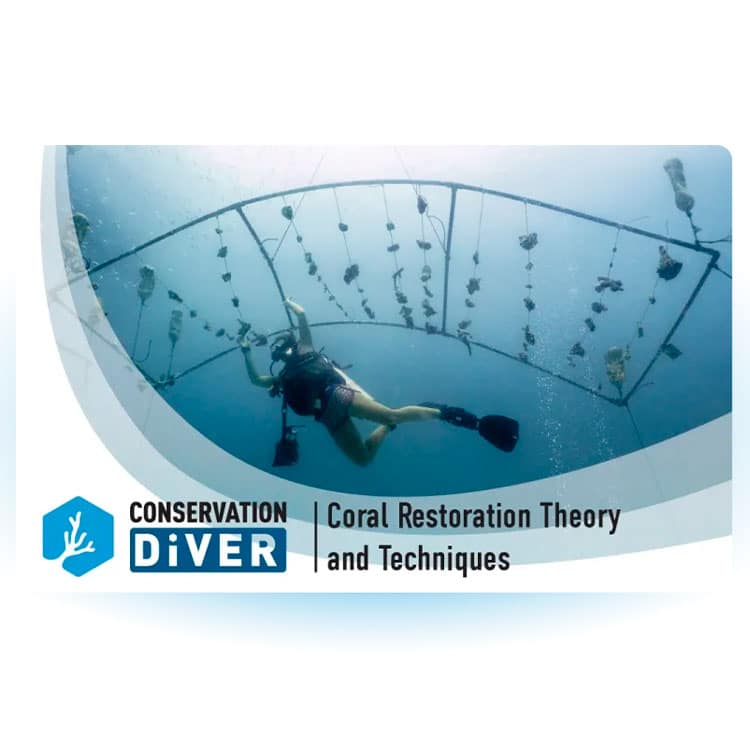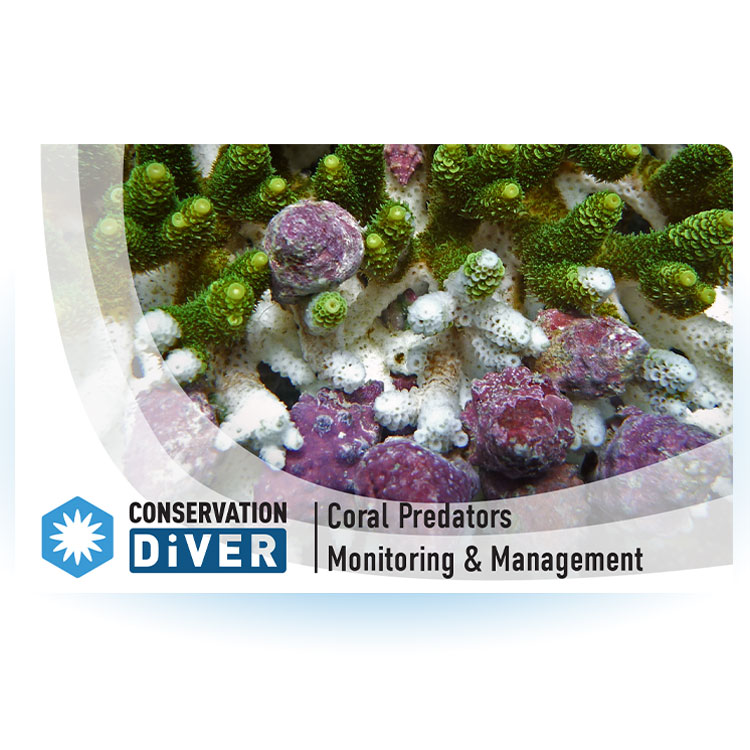Mooring Line Maintenance & Installation
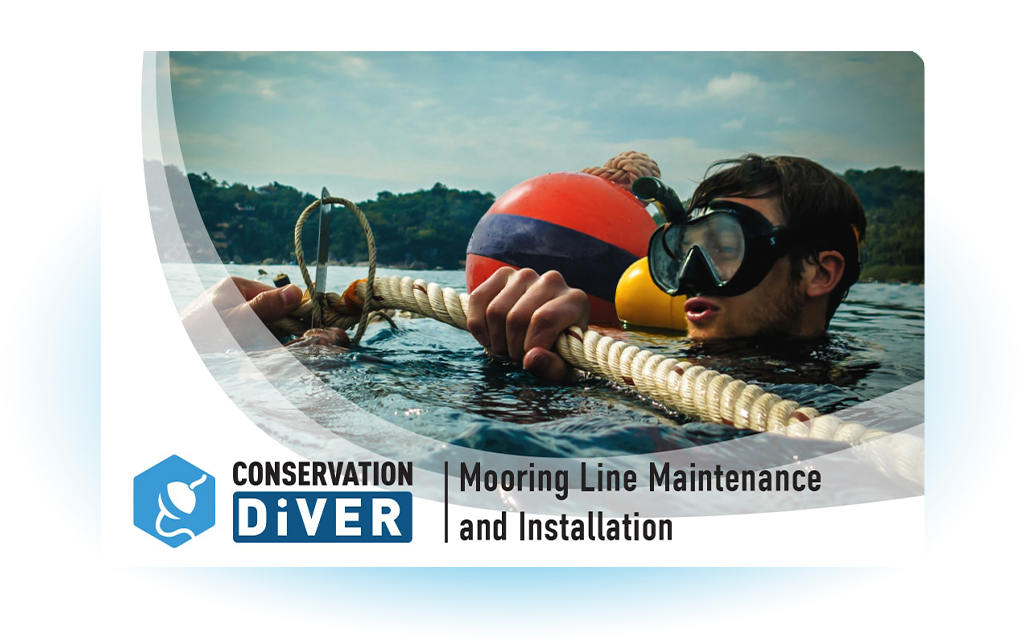
Mooring Line Maintenance & Installation
Mooring lines are one of the most simple and effective means to reduce structural damage to coral reefs caused by anchors and boats. Any tourism impacted area should have mooring lines available for use, but they can often be difficult and expensive to install. In this course you will gain a wide range of knowledge on the assembly and installation of effective mooring buoys. After receiving this certification you will have all of the necessary skills needed to maintain or install mooring buoys wherever they are needed.
Understand marine zoning theories and practicalities.
Learn proper anchor point selection and construction for mooring lines.
Grasp the components and design principles for robust mooring systems.
Acquire proficiency in essential knot tying and mooring line installation and maintenance.
Program Eligibility and Requirements
To join the Mooring Line Maintenance & Installation Program, participants need to meet the following criteria:
- Age Requirement: Applicants must be 12 years of age or older.
- Diver Certification: Applicants should hold certification as an Advanced diver from a recognized diving organization such as PADI, SSI, RAID, or similar. Alternatively, Open Water divers can be eligible if they have successfully completed a buoyancy appraisal under the guidance of a professional diver.
- Diving Proficiency: Applicants need to showcase advanced diving skills, including excellent buoyancy control and self-awareness.
- Certifications: Interested individuals must have completed the following certifications offered by our program:
Upon Enrollment in the Course, participants will be required to:
- Understand the theories and practicalities of marine zoning and spatial planning
- Learn about the proper selection or construction of mooring lines bases/anchor points
- Understand the various parts of the mooring system, and how to design it for strength and longevity
- Know how to tie eight knots used throughout the installation of mooring lines
- Install/maintain a mooring line system
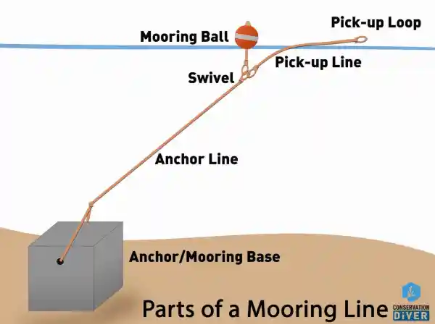
Discover other related courses
Nothing found.
Mangrove Reforestation & Monitoring
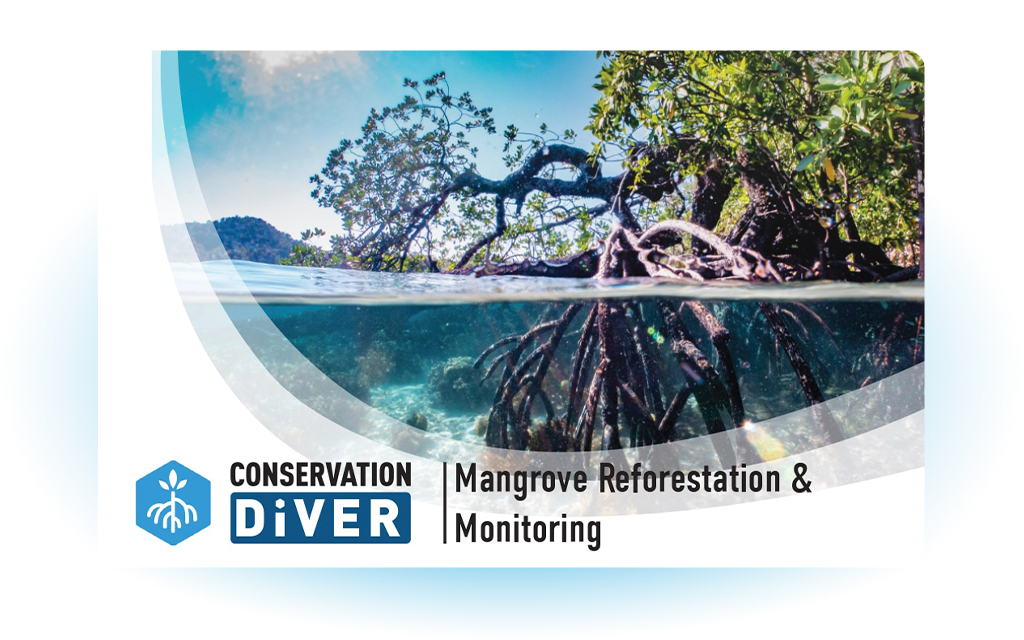
Mangrove Reforestation & Monitoring
The Advanced Ecological Monitoring Program certification is a prestigious certification course for students seeking to gain knowledge and practice in a multitude of research techniques and demonstrate exceptional skill in performing reef surveys and data collection. This certification recognizes your commitment to coral reef monitoring and research and takes several weeks to achieve.
Explore the diverse biota within mangrove forests, understanding their vital functions.
Learn about the local mangrove coverage and the threats they face, gaining insight into the associated causes and effects.
Acquire the skills to halt mangrove destruction and actively participate in reforestation efforts.
Grasp the pivotal role of mangroves in coastal ecosystems, including their unique biological features and zonation.
Program Eligibility and Requirements
To join the Mangrove Reforestation & Monitoring Program, participants need to meet the following criteria:
- None. This course is open to non-divers.
Upon Enrollment in the Course, participants will be required to:
- Attend the practical session to understand the steps required for reforestation using mangrove nurseries.
- Learn how to collect and handle seedlings.
- Learn how to monitor density, biodiversity, and growth/deforestation rates of mangrove forests.
- Complete e-Learning.
Discover other related courses
Nothing found.
Macro Algae Monitoring & Management
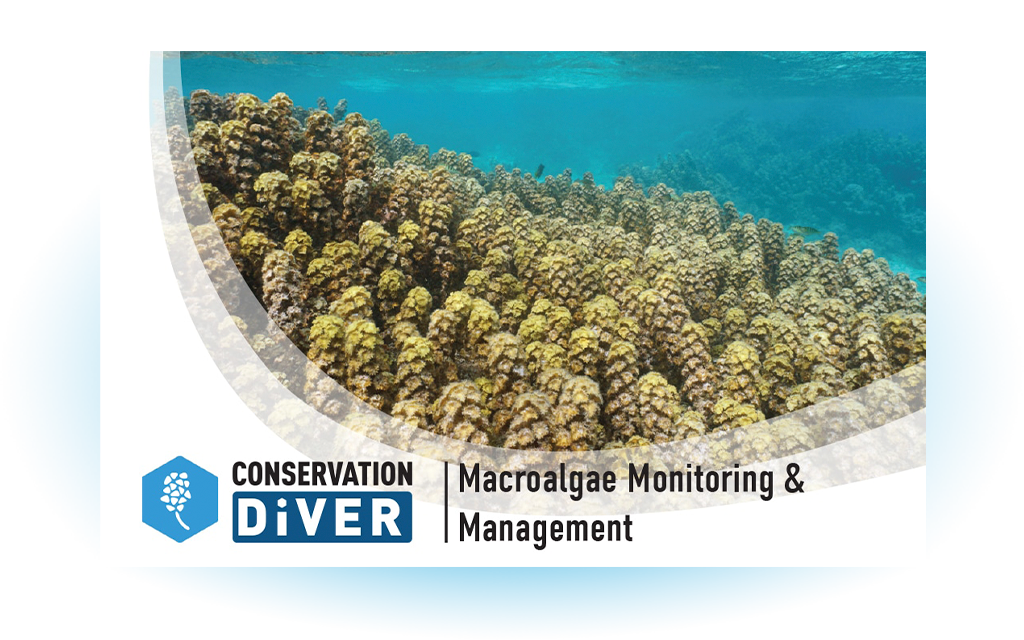
Macro Algae Monitoring & Management
Macro algae are a natural part of our ocean ecosystems, providing a food sources to grazing herbivores and regulating the ocean environment by absorbing carbon dioxide and nitrates whilst releasing oxygen. However due to shifts in nutrient levels flowing onto the reef, macro algae overgrowth is a growing concern. They can foul over coral, take up value clear substrate preventing coral larvae to land and grow, as well as cause eutrophication and harmful blooms that can devoid the ocean of life.
Explore the distinctions between terrestrial and marine plants, delve into microalgae types, and understand cyanobacteria's pivotal role in Earth's evolution.
Grasp macro-algae's reproductive tactics and their implications for reef ecosystems. Investigate the chemical composition's influence on pigmentation and depth distribution.
Recognize how marine plants contribute to the carbon cycle. Acquire expertise in marine plant anatomy, morphology, and diagnostic features for identification.
Gain insight into the taxonomic system, and develop practical skills for monitoring, recording, and identifying marine plants and microorganisms. Additionally, familiarize yourself with family and genus recognition.
Program Eligibility and Requirements
To join the Macro Algae Monitoring & Management Program, participants need to meet the following criteria:
- Age Requirement: Applicants must be 12 years of age or older.
- Diver Certification: Applicants should hold certification as an Advanced diver from a recognized diving organization such as PADI, SSI, RAID, or similar. Alternatively, Open Water divers can be eligible if they have successfully completed a buoyancy appraisal under the guidance of a professional diver.
- Diving Proficiency: Applicants need to showcase advanced diving skills, including excellent buoyancy control and self-awareness.
- Certifications: Interested individuals must have completed the following certifications offered by our program:
- Ecological Monitoring Program (EMP) certification
Upon Enrollment in the Course, participants will be required to:
- Attend knowledge development session
- Practice identifying marine plants on land using photo analysis and/or specimens
- Perform 1 survey dive to analyse macro algae coverage using a quadrat
- Perform 1 survey dive specifically taking data on macro algae genera as part of the EMP substrate dive
- Be able to accurately identify at least 5 of the most common algae genera to the region
- Complete e-Learning
Published papers and reports derived through the teaching of this course
- Recruitment of hard coral communities on giant clam shells (Cardiidae: Tridacna) differ from surrounding reef habitats at a tourist destination in the Gulf of Thailand
Rahul Mehrotra, Alyssa Allchurch, Coline Monchanin, Chad M Scott - Citizen science reveals the population structure and seasonal presence of whale sharks in the Gulf of Thailand
Kirsty Magson, Emily Monacella, Chad Scott, Noémie Buffat, Sirachai Arunrugstichai, Metavee Chuangcharoendee, Simon J Pierce, Jason Holmberg, Gonzalo Araujo - Population dynamics of corallivores (Drupella and Acanthaster) on coral reefs of Koh Tao, a diving destination in the Gulf of Thailand by Chad M. Scott, Rahul Mehrotra, Margaux Y. Hein, Michelangelo S. Moerland, and Bert W. Hoeksema
- Rare zooxanthellate Nanipora octocoral (Helioporacea) in the Gulf of Thailand by Pau Urgell Plaza, Rahul Mehrotra, Chad M. Scott and James Davis Reimer
- Changes in hard coral abundance and composition on Koh Tao, Thailand, 2006-2014 by Chad M. Scott, Rahul Mehrotra, Madalena Cabral and Sirachai Arunrugstichai
- An update to the list of coral reef fishes from Koh Tao, Gulf of Thailand by Patrick Scaps and Chad M. Scott
- Incident Report and Restoration Overview: Boat Grounding, Chalok Ban Kao Reef, January 2017 2015. by Chad Scott, Spencer Arnold, Elouise Haskin, Kirsty Magson, Rahul Mehrotra, Joel Rorher, Pau Urgell Plaza
Discover other related courses
Nothing found.
Invasive Lionfish Management
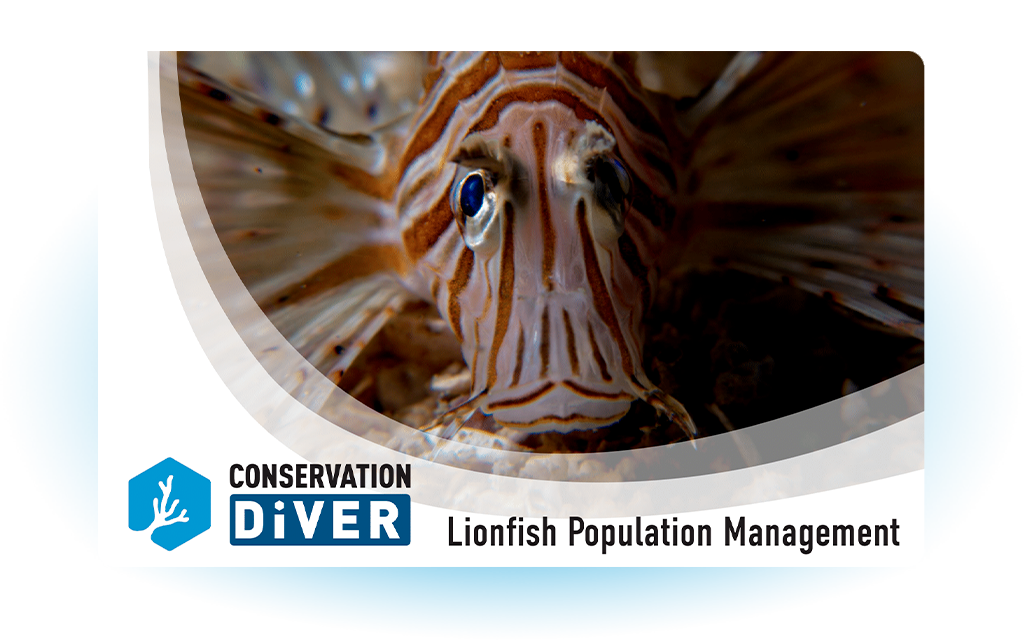
Invasive Lionfish Management
Although endemic to the Indo-Pacific, Lionfish are an extremely damaging invasive species in the Caribbean and Mediterranean. This course is designed to give students an introduction to how outbreaks of an invasive species can effect a marine ecosystem and the effects of such imbalances in the reef ecosystem. They will gain the knowledge and skills to monitor and assess lionfish populations and learn how to safely and effectively remove them.
Understand the concept of invasive species and their ecological impact.
Acquire skills to safely spear Lionfish without harming the reef or yourself and how to handle them to remove venomous spines.
Know the process for recording Lionfish data in the Conservation Diver database, contributing to conservation efforts.
Acquire skills to safely spear Lionfish without harming the reef or yourself and how to handle them to remove venomous spines.
Program Eligibility and Requirements
To join the Invasive Lionfish Management Program, participants need to meet the following criteria:
- Age Requirement: Applicants must be 12 years of age or older.
- Diver Certification: Applicants should hold certification as an Advanced diver from a recognized diving organization such as PADI, SSI, RAID, or similar. Alternatively, Open Water divers can be eligible if they have successfully completed a buoyancy appraisal under the guidance of a professional diver.
- Diving Proficiency: Applicants need to showcase advanced diving skills, including excellent buoyancy control and self-awareness.
Upon Enrollment in the Course, participants will be required to:
- Attend 1 practical session on the use of the spear and zoo keeper
- Attend 1 lecture on Invasive Lionfish management
- Perform 1 lionfish removal dive using the spear and zoo keeper
- Record data of lionfish sightings including location, depth, time and date, size, and the removal status
- Complete e-Learning
Note: Attempts must be made to find and remove Lionfish following protocols outlined in the practical session. If lionfish are not found, can’t be removed safely or without causing damage to the reef, or participants do not want to kill the fish, they can still receive the certification.
Discover other related courses
Nothing found.
Giant Clam Monitoring & Management
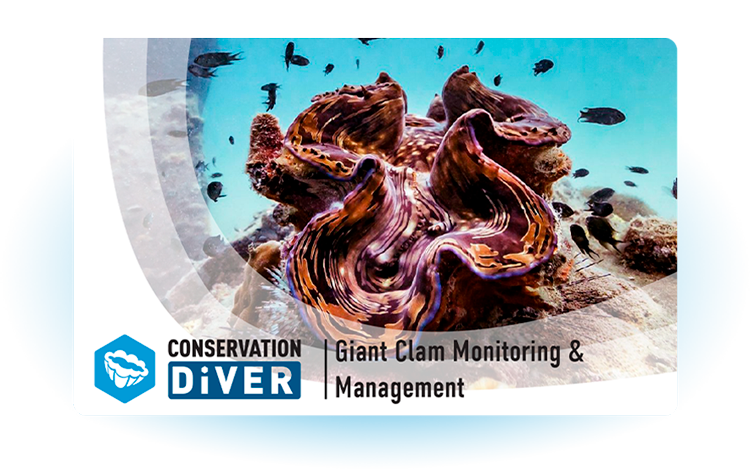
Giant Clam Monitoring & Management
Giant clams are important regulators of the oligotrophic conditions that coral reefs need to thrive. They are able to filter an average of 1000 liters of water per day, which controls water quality and nutrient levels in the ecosystem. This reduction in nutrients by filter feeders allows corals to thrive. During this course, students will be introduced to different survey techniques to monitor giant clams and will be taught the key processes to evaluate and recognize different species. We will also demonstrate the steps required to manage giant clam nurseries, as well as the ongoing maintenance and data collection to be performed following transplantation.
Acquire the ability to identify giant clam species through anatomical features.
Grasp the importance, ecology, and global threats facing giant clam populations.
Master the techniques for operating and maintaining in-sea giant clam nurseries.
Learn survey techniques to monitor local giant clam populations effectively.
Program Eligibility and Requirements
To join the Giant Clam Nurseries and Population Program, participants need to meet the following criteria:
- Age Requirement: Applicants must be 12 years of age or older.
- Diver Certification: Applicants should hold certification as an Advanced diver from a recognized diving organization such as PADI, SSI, RAID, or similar. Alternatively, Open Water divers can be eligible if they have successfully completed a buoyancy appraisal under the guidance of a professional diver.
- Diving Proficiency: Applicants need to showcase advanced diving skills, including excellent buoyancy control and self-awareness.
- Certifications: Interested individuals must have completed the following certifications offered by our program:
Upon Enrollment in the Course, participants will be required to:
- Attend 1 Giant Clam Lecture
- Perform 1 survey dive specifically taking data on Giant Clam Abundance/Density, Diversity, and size distribution
- Take data on giant clam growth and mortality at the in-sea nurseries
- Perform general maintenance duties during 1 dive at the giant clam nurseries
- Enter data into Conservation Diver database
- Complete the final quiz
Discover other related courses
Nothing found.
Ecological Monitoring Program
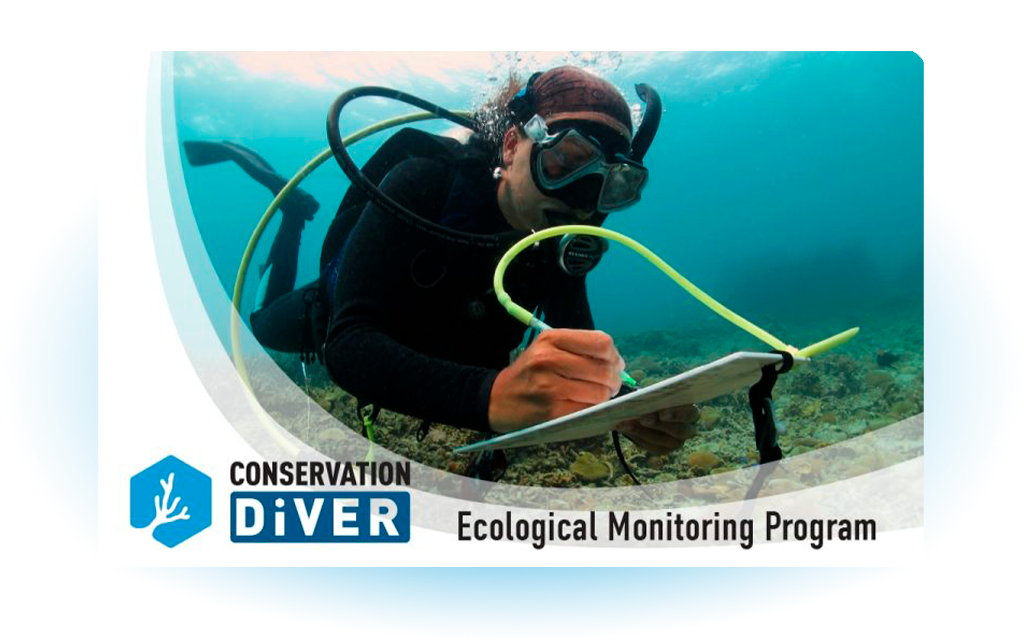
Ecological Monitoring Program
The Ecological Monitoring program is designed to give students an introduction to coral reef ecology and how to view the reef scientifically by assessing key biotic and abiotic reef components. The course teaches students how to use real world scientific sampling and reef survey techniques and certifies them to conduct their own surveys and report data back to the online database. Parameters assessed include fish and invertebrate abundance and biodiversity, substrate cover, coral taxonomy, coral diseases, coral bleaching, and more. This course is a prerequisite for many of the other courses offered by Conservation Diver
Understand coral reef ecology and the challenges they face.
Learn various survey methods used by reef managers to monitor coral reef ecosystems.
Develop skills to identify coral reef invertebrates and vertebrates along permanent transect lines, focusing on diagnostic features.
Learn to assess substrate types, hard coral coverage/growth forms, and coral health, including bleaching.
Program Eligibility and Requirements
To join the Advanced Ecological Monitoring Program, participants need to meet the following criteria:
- Age Requirement: Applicants must be 12 years of age or older.
- Diver Certification: Applicants should hold certification as an Advanced diver from a recognized diving organization such as PADI, SSI, RAID, or similar. Alternatively, Open Water divers can be eligible if they have successfully completed a buoyancy appraisal under the guidance of a professional diver.
- Diving Proficiency: Applicants need to showcase advanced diving skills, including excellent buoyancy control and self-awareness.
- Certifications: Interested individuals must have completed the following certifications offered by our program:
Upon Enrollment in the Course, participants will be required to:
- Attend all knowledge development presentations
- Complete the e-Learning or read and complete chapter reviews for chapters 1-8 in the EMP manual
- Enter records into database
- Perform all three surveys (at least once):
- Invertebrated
- Fish
- Substrate
- Perform a ‘full EMP’ at least once
- Enter data onto data sheets or into the online database
Published papers and reports derived through the teaching of this course
- Population dynamics of corallivores (Drupella and Acanthaster) on coral reefs of Koh Tao, a diving destination in the Gulf of Thailand by Chad M. Scott, Rahul Mehrotra, Margaux Y. Hein, Michelangelo S. Moerland, and Bert W. Hoeksema
- Rare zooxanthellate Nanipora octocoral (Helioporacea) in the Gulf of Thailand by Pau Urgell Plaza, Rahul Mehrotra, Chad M. Scott and James Davis Reimer
- Changes in hard coral abundance and composition on Koh Tao, Thailand, 2006-2014 by Chad M. Scott, Rahul Mehrotra, Madalena Cabral and Sirachai Arunrugstichai
- An update to the list of coral reef fishes from Koh Tao, Gulf of Thailand by Patrick Scaps and Chad M. Scott
Discover other related courses
Nothing found.
Coral Taxonomy & Identification
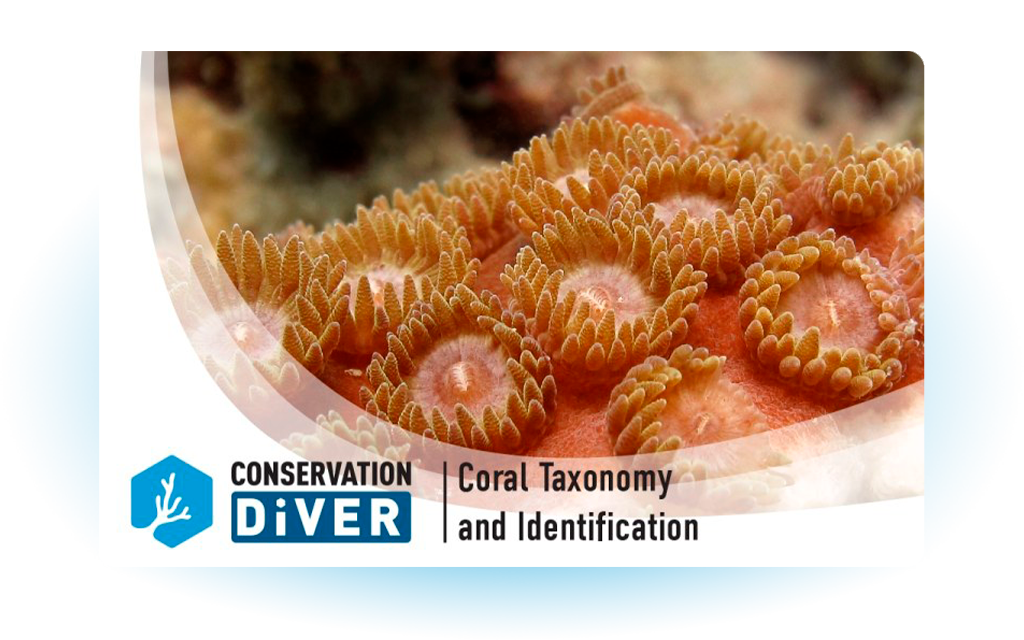
Coral Taxonomy & Identification
Being able to accurately identify corals by their family and species is vital for any research, monitoring, and restoration courses. It is also a great way to learn more about their evolutionary and life history, and gain a new appreciation and love for their diversity. In this course, you will learn how to identify corals underwater based on their anatomical features, and on land based on their skeletal features. You will also learn tips and tricks to remembering the names and how to ID them underwater. Depending on where you take the course, you will learn the most common species in your area, but have the tools to learn the species wherever you dive next.
Understand the taxonomic system for classifying hard corals.
Learn to recognize the names of coral families and genera.
Discover mnemonic techniques to remember Latin names effectively.
Gain familiarity with coral anatomy and skeletal features for identification.
Program Eligibility and Requirements
To join the Advanced Ecological Monitoring Program, participants need to meet the following criteria:
- Age Requirement: Applicants must be 12 years of age or older.
- Diver Certification: Applicants should hold certification as an Advanced diver from a recognized diving organization such as PADI, SSI, RAID, or similar. Alternatively, Open Water divers can be eligible if they have successfully completed a buoyancy appraisal under the guidance of a professional diver.
- Diving Proficiency: Applicants need to showcase advanced diving skills, including excellent buoyancy control and self-awareness.
- Certifications: Interested individuals must have completed the following certifications offered by our program:
Upon Enrollment in the Course, participants will be required to:
- Attend 1 Coral Taxonomy and Identification lecture
- Practice identifying corals on land with the EMP book or CoralFinder Guide (By BYO Guides), using specimens
- Perform 1 coral taxonomy identification dive learning how to coral anatomy and skeletal morphology
- Perform 1 survey dive specifically taking data on coral genera – can either be the EMP substrate dive, coral disease survey, or a quadrat survey
- Be able to accurately identify at least 10 of the most common coral genera to the region
- Complete the final quiz
Discover other related courses
Nothing found.
Coral Spawning and Larval Culturing Program
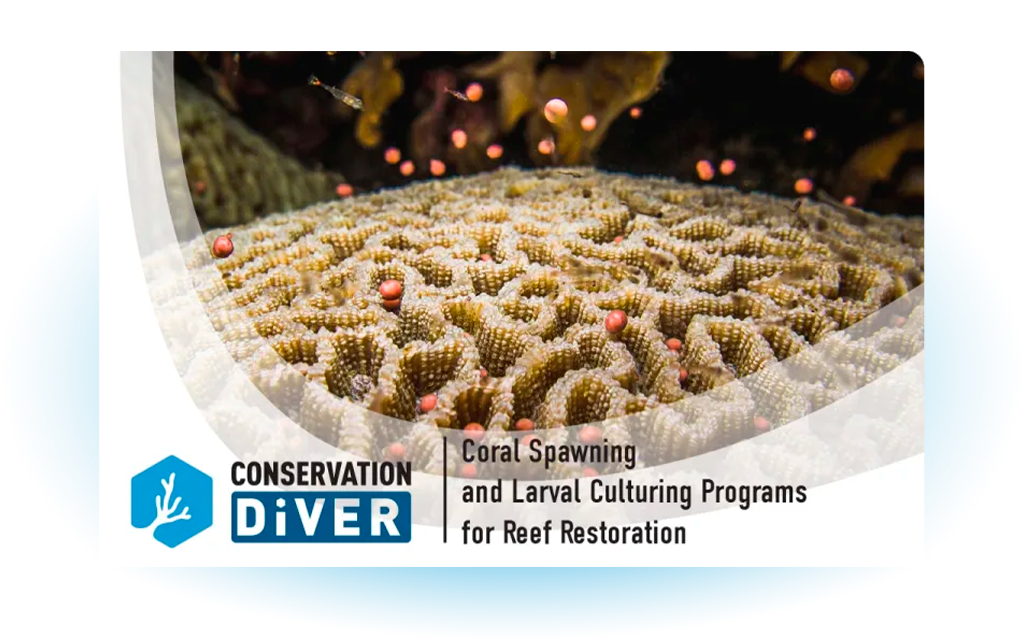
Coral Spawning and Larval Culturing Programs for Reef Restoration
Coral Spawning and larvae culturing is a relatively new form of obtaining feedstock’s for reef restoration. Rather than using ‘donor’ colonies, which are usually sourced from the natural reefs, this technique uses coral eggs and sperm to create new coral colonies which are all genetic individuals. For years this technique has only been available to researchers and professionals with a high amount of knowledge, expertise, and funding. With our improved techniques however anybody can involve in these techniques, improving the genetic diversity of restored areas and increasing the resilience of corals reefs.
Learn how to track and predict coral spawning events accurately.
Learn to capture coral larvae and eggs, prioritize genetic diversity, and excel in ex-situ cultivation and larvae settlement, along with expert maintenance of rearing ponds.
Understand coral reproductive cycles and their significance in preserving diversity and rejuvenating reef growth.
Grasp various modes and evolutionary stable strategies in coral reproduction and their relevance to reef threats and restoration.
Program Eligibility and Requirements
To join the Coral Spawning and Larval Culturing Program, participants need to meet the following criteria:
- Age Requirement: Applicants must be 12 years of age or older.
- Diver Certification: Applicants should hold certification as an Advanced diver from a recognized diving organization such as PADI, SSI, RAID, or similar. Alternatively, Open Water divers can be eligible if they have successfully completed a buoyancy appraisal under the guidance of a professional diver.
- Diving Proficiency: Applicants need to showcase advanced diving skills, including excellent buoyancy control and self-awareness.
- Certifications: Interested individuals must have completed the following certifications offered by our program:
Upon Enrollment in the Course, participants will be required to:
- Attend 3 lectures on coral spawning and larval capturing and culturing
- Perform 3 dives related to coral spawning activities:
- In-water histology and site preparation
- Spawning observation and timing
- Larval capture and fertilization
- Assist in the fertilization and rearing of coral larval
Published papers and reports derived through the teaching of this course
- Developing community-accessible methods of increasing coral reef resilience through selective coral breeding programs (Chad M. Scott and James D. True)
- Community Based Strategies to Enhance Coral Reef Resilience and Recovery through Selective Coral Larval Culturing to Strengthen Population Genetic Fitness (Chad Scott, Prince of Songkla University)
- Culturing of coral spawn Analysis of the implementation of a scientific project into the community of Koh Tao, Thailand (Christoph Hoppe, Van Hall Larenstein)
Discover other related courses
Nothing found.
Coral Restoration Theory & Techniques
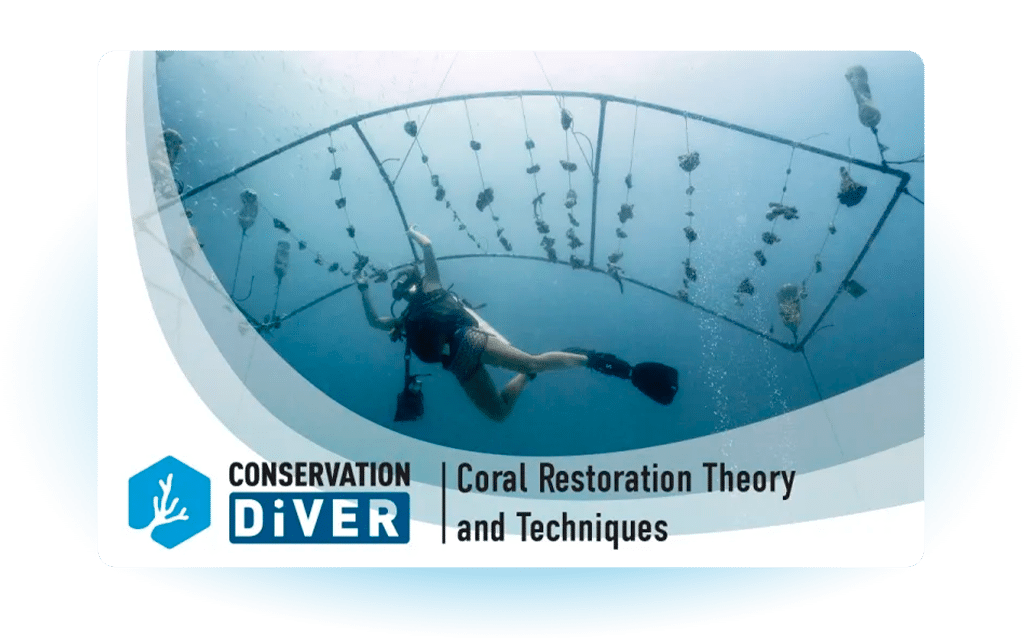
Coral Restoration Theory & Techniques
The Advanced Ecological Monitoring Program certification is a prestigious certification course for students seeking to gain knowledge and practice in a multitude of research techniques and demonstrate exceptional skill in performing reef surveys and data collection. This certification recognizes your commitment to coral reef monitoring and research and takes several weeks to achieve.
Learn and apply a range of marine research methods, from water quality testing to coral health monitoring.
Successfully execute various survey methods and adhere to precise data collection protocols.
Enter data into established databases and gain insight into effective analysis and reporting.
Develop a well-rounded skill set for impactful marine research and conservation efforts.
Program Eligibility and Requirements
To join the Coral Restoration Theory & Techniques Program, participants need to meet the following criteria:
- Age Requirement: Applicants must be 12 years of age or older.
- Diver Certification: Applicants should hold certification as an Advanced diver from a recognized diving organization such as PADI, SSI, RAID, or similar. Alternatively, Open Water divers can be eligible if they have successfully completed a buoyancy appraisal under the guidance of a professional diver.
- Diving Proficiency: Applicants need to showcase advanced diving skills, including excellent buoyancy control and self-awareness.
- Certifications: Interested individuals must have completed the following certifications offered by our program:
Upon Enrollment in the Course, participants will be required to:
- Attend all knowledge development presentations included in the courses listed above, including the Advanced Ecological Monitoring Program lecture.
- Read and complete the chapter reviews for chapters 9-10 of the Ecological Monitoring Program manual.
- Successfully pass all the written exams for the courses listed above, achieving a score of 80% or higher.
- Engage in at least one Compromised Coral Health survey or Coral Bleaching Survey.
Published papers and reports derived through the teaching of this course
- Recruitment of hard coral communities on giant clam shells (Cardiidae: Tridacna) differ from surrounding reef habitats at a tourist destination in the Gulf of Thailand
Rahul Mehrotra, Alyssa Allchurch, Coline Monchanin, Chad M Scott - Citizen science reveals the population structure and seasonal presence of whale sharks in the Gulf of Thailand
Kirsty Magson, Emily Monacella, Chad Scott, Noémie Buffat, Sirachai Arunrugstichai, Metavee Chuangcharoendee, Simon J Pierce, Jason Holmberg, Gonzalo Araujo - Population dynamics of corallivores (Drupella and Acanthaster) on coral reefs of Koh Tao, a diving destination in the Gulf of Thailand by Chad M. Scott, Rahul Mehrotra, Margaux Y. Hein, Michelangelo S. Moerland, and Bert W. Hoeksema
- Rare zooxanthellate Nanipora octocoral (Helioporacea) in the Gulf of Thailand by Pau Urgell Plaza, Rahul Mehrotra, Chad M. Scott and James Davis Reimer
- Changes in hard coral abundance and composition on Koh Tao, Thailand, 2006-2014 by Chad M. Scott, Rahul Mehrotra, Madalena Cabral and Sirachai Arunrugstichai
- An update to the list of coral reef fishes from Koh Tao, Gulf of Thailand by Patrick Scaps and Chad M. Scott
- Incident Report and Restoration Overview: Boat Grounding, Chalok Ban Kao Reef, January 2017 2015. by Chad Scott, Spencer Arnold, Elouise Haskin, Kirsty Magson, Rahul Mehrotra, Joel Rorher, Pau Urgell Plaza
Discover other related courses
Nothing found.
Coral Predators Monitoring & Management
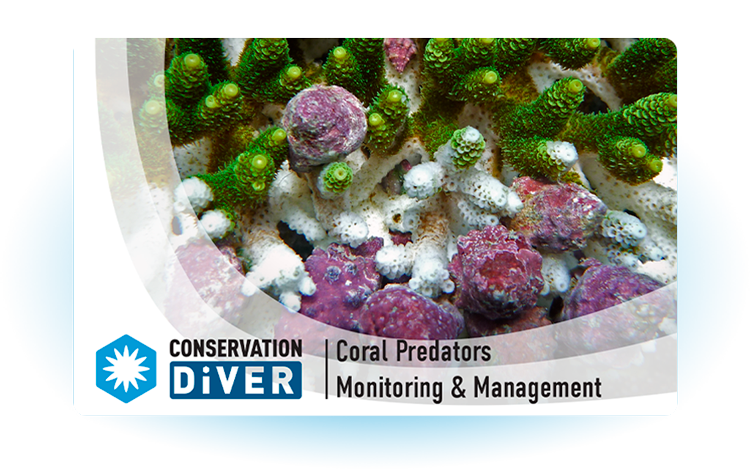
Coral Predators Monitoring & Management
The Coral Predators: Population Monitoring and Management Course is designed to give students an introduction to the impacts of over-populations or outbreaks of coral predators such as the Crown of Thorns starfish and Drupella Snails. The course teaches students about the causes and effects of imbalances in the reef ecosystem, and gives them the knowledge and skills to monitor and assess coral predator populations. In addition to learning about ways to address the root of the problem, students will also learn how to safely and effectively manage populations of coral predators to increase reef resilience, decrease mortality following bleaching events, and be proactive in managing coral reef areas for future sustainability.
Learn about the root causes of coral predator population outbreaks.
Gain insight into current theories on the population dynamics of coral predators in stressed reef ecosystems.
Comprehend the vital role of coral predators within the reef ecosystem.
Develop skills in safely and effectively managing coral predator populations, including assessing their abundance.
Program Eligibility and Requirements
To join the Coral Predators: Population Monitoring & Management Program, participants need to meet the following criteria:
- Age Requirement: Applicants must be 12 years of age or older.
- Diver Certification: Applicants should hold certification as an Advanced diver from a recognized diving organization such as PADI, SSI, RAID, or similar. Alternatively, Open Water divers can be eligible if they have successfully completed a buoyancy appraisal under the guidance of a professional diver.
- Diving Proficiency: Applicants need to showcase advanced diving skills, including excellent buoyancy control and self-awareness.
- Certifications: Interested individuals must have completed the following certifications offered by our program:
Upon Enrollment in the Course, participants will be required to:
- Attend the lecture on coral predators
- Perform a coral predator population survey
- If research suggests a local outbreak then perform a predator management and removal dive
Published papers and reports derived through the teaching of this course
- Population dynamics of corallivores (Drupella and Acanthaster) on coral reefs of Koh Tao, a diving destination in the Gulf of Thailand by Chad M. Scott, Rahul Mehrotra, Margaux Y. Hein, Michelangelo S. Moerland, and Bert W. Hoeksema
- In-situ egg deposition by corallivorous snails on mushroom corals at Koh Tao (Gulf of Thailand) by Chad M. Scott, Rahul Mehrotra and Bert W. Hoeksema
- Prey selection of corallivorous muricids at Koh Tao (Gulf of Thailand) four years after a major coral bleaching event by Michelangelo S. Moerland, Chad M. Scott and Bert W. Hoeksema
- Spawning observation of Acanthaster planci in the Gulf of Thailand by Chad M. Scott, Rahul Mehrotra and Pau Urgell Plaza
- Dietary shift in corallivorous Drupella snails following a major bleaching event at Koh Tao, Gulf of Thailand by B.W. Hoeksema, C. Scott & J.D. True
Discover other related courses
Nothing found.
